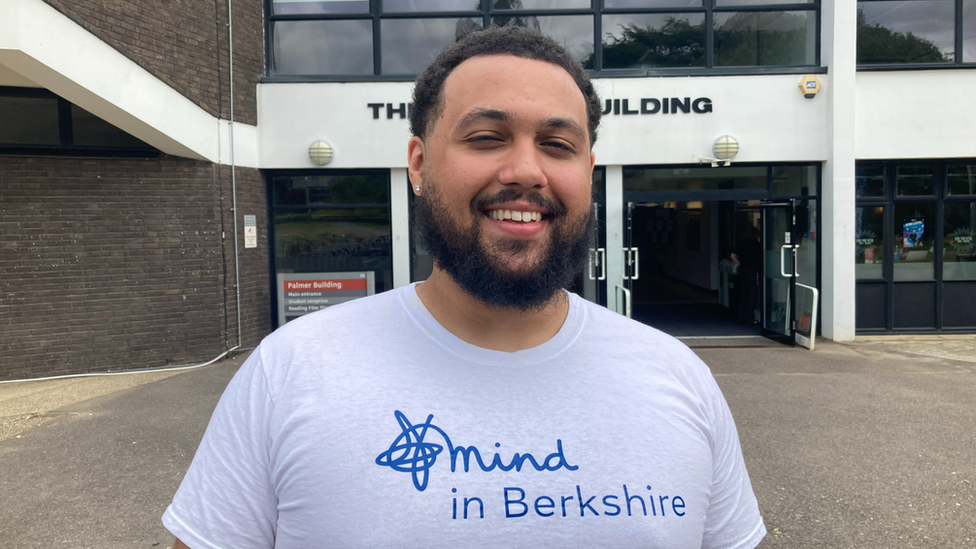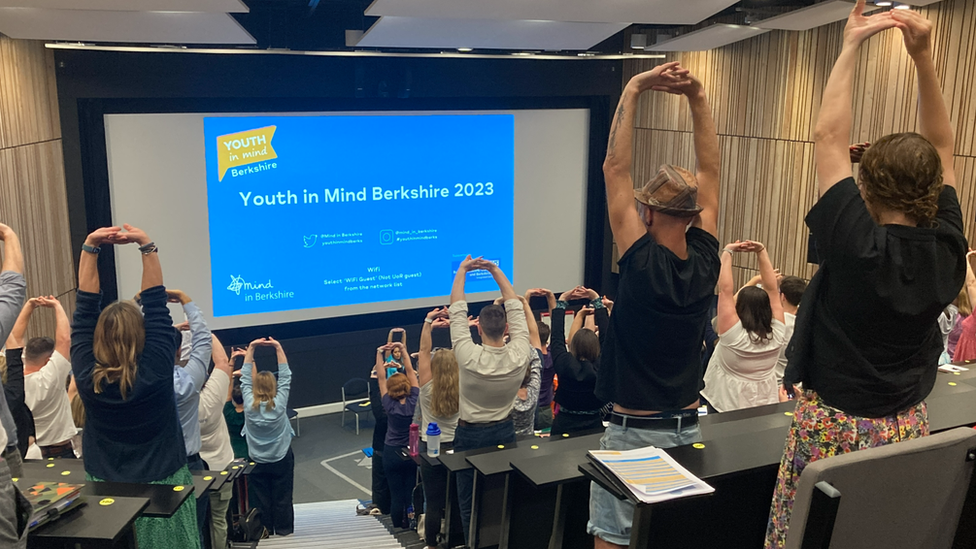Cost of living crisis: Children's mental health suffering, Reading forum told
- Published

Rose, one of the conference organisers, said young people struggled with seeing their parents suffer
Young people are suffering mental harm from seeing their parents struggle with the cost of living, a conference has been told.
Family finances were highlighted by delegates in Reading as a leading cause of mental health issues for children.
Young people worked with the mental health charity Mind to plan the conference at the town's university.
One of the organisers, Year 10 student Rose, said children were "panicking" over the issue.

Louis Headley from the charity Mind said children were not blind to cost-of-living issues
The Maiden Erlegh School student said: "Kids are seeing their parents get anxious. This is meant to be like your superhero, your idol.
"And you're seeing them skipping meals. Even in high-income families, people are still seeing on television, on news about... the cost of living.
"Young people are seeing this and they're panicking."

The Youth in Mind conference was held at the University of Reading
Louis Headley from Mind in Berkshire said: "It's so difficult to be a child in this day and age, especially when you're seeing your family struggle.
"Some people are choosing between eating today and eating tomorrow. We've got parents skipping meals. That can't be a comfortable thing to see as a young person.
"And if young people are aware of that, we should not be pushing them out. You can't just wrap them in cotton wool and expect them not to ask questions."
More than 20 young people joined health professionals at the second annual Youth in Mind Berkshire conference.
They took part in workshops on topics including money, relationships and body issues.
Youth referrals for mental health have "exploded", according to the charity YoungMinds.
It said there were 1,425,193 referrals last year according to NHS data, a rise of 76% since 2019.

Follow BBC South on Facebook, external, Twitter, external, or Instagram, external. Send your story ideas to south.newsonline@bbc.co.uk, external.
Related topics
- Published24 January 2023

- Published5 September 2022

- Published16 June 2022
